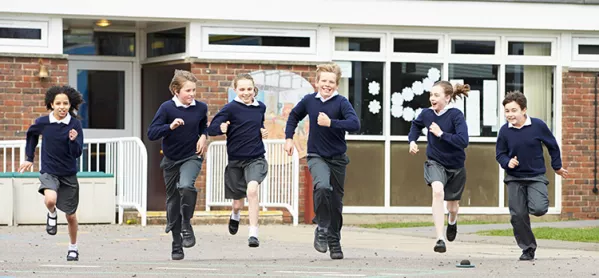The headlines that greeted the publication of
this year’s Sats results conjured up images of gloom and despondency.
They mostly focused on the fact that 39 per cent of 11-year-olds who had sat the tests did not reach the required standard in reading, writing and maths.
In days gone by politicians would have used these figures to claim that this 39 per cent were illiterate or innumerate. Doubtless, they will do in election campaigns in future. After all, “39 per cent of 11-year-olds can’t read, write or add up properly” makes a better headline than “Steady progress made in improving standards among 11-year-olds”.
A pity - because that is what the real story is. This is the second year of 11-year-olds having to sit more difficult tests, which were set under Michael Gove’s tenure as education secretary, and they show that 61 per cent have reached the required progress in all three subject areas compared to 53 per cent last year.
It is steady progress all round - reading up from 66 per cent to 71 per cent, maths up from 70 per cent to 75 per cent, grammar punctuation and spelling up from 73 per cent to 77 per cent and writing up from 74 to 76 per cent.
On a salutary note, the first year of the tougher tests brought the percentage reaching the standard nationally down from 80 per cent to 53 per cent.
Which begs the question - as posed by Kevin Courtney, general secretary of the NUT teaching union: should we really be sending 39 per cent of our youngsters on to secondary school with a feeling of failure in their bones?
The answer is no and that then begs the question: should we have introduced tougher hurdles for our 11-year-olds to mount?
I have no problem with making the tests more exacting if - as was evidently the case - our 11-year-olds were showing a better mastery of them. I think, though, we need to look at the bald way in which we present the statistics and how we judge schools’ success or failure on them.
We should remember that - when they were first introduced - way back in the mists of time, nearly three decades ago, the required standard was that which would be expected of an average 11-year-old. It was not a pass mark, it was a standard below which fell only those children who were unable to read, write or add up properly.
I remember one junior minister looking at the early results and being disgusted with the children’s performance. He asked: “Why is it that 50 per cent of children are below average?”
So let’s greet this year’s results with a degree of thoughtfulness and measured pleasure that there is a steady rise in the numbers reaching the required standard but not as a stick with which to beat those children who haven’t.
And what about GCSEs?
Every now and again, someone comes up with a report suggesting that we should either scrap GCSEs or place less importance on their results. The latest comes from the Edge Foundation, the charity that campaigns to place vocational and academic education on a par with each other.
I sympathise with their conclusions - that we need a more coherent 14 to 19 education that would help produce youngsters with the skills we will need in a post-Brexit world. Currently, the report says, it would appear we will be 3 million skilled workers short by the year 2050.
The logical conclusion of this would be to have a system that has a defining cut off point at 14 - by which age, young people would be better equipped to choose whether to go down a vocational or academic route or a mixture of the two.
I suspect that may be a reform too much for those who work in our beleaguered education system, though.
Richard Garner was education editor of The Independent for 12 years, and previously news editor of Tes. He has been writing about education for more than three decades.
To read more columns by Richard, view his back catalogue.
Want to keep up with the latest education news and opinion? Follow Tes on Twitter and like Tes on Facebook.




